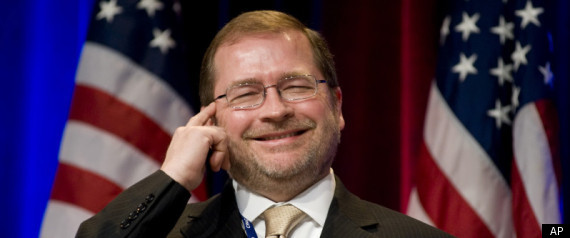Republicans would accept a “mini” deal with the Obama administration on raising the debt limit, Senator John Cornyn of Texas, a Republican leader, said.
Cornyn said today on “Fox News Sunday” that while Republicans would prefer a long-term settlement, they would accept a shorter-term agreement if that’s all they could get done. The U.S. Treasury Department has projected that on Aug. 2 the U.S. will no longer be able to meet obligations if the legal debt ceiling isn’t raised.
“The problem with a mini-deal is we have a maxi problem,” said Cornyn, who is in charge of the 2012 Republican Senate campaign strategy. “We’ll take the savings we can get now, and we will re-litigate this as we get closer to the election.”
The Senate shortened its July 4 recess and will remain in Washington to discuss a deal this week to raise the nation’s $14.3 trillion debt limit. The Obama administration is negotiating with Congress on reducing the long-term budget deficit as part of a plan to raise the limit before borrowing authority expires.
A spokesman for House Speaker John Boehner, an Ohio Republican, declined to comment on the idea of a short-term deal.
“The speaker has always said that the time is now and our goal is to get the largest possible spending cuts,” Michael Steel, a spokesman for Boehner, said in an interview.
The White House didn’t immediately respond to a request for comment on Cornyn’s remarks.
Any deal shouldn’t include a tax increase, Senator John McCain, an Arizona Republican, said today on CNN’s “State of the Union” broadcast.
Closing some so-called tax loopholes would “have very small impact, but the principle of not raising taxes is something that we campaigned on last November and the results of the election was that the American people didn’t want their taxes raised and they wanted us to cut spending,” he said.
Republicans won control of the House of Representatives and gained seats in the Senate in the 2010 midterm elections.
Cornyn, asked about the idea of Obama ignoring the debt ceiling, said that’s “crazy talk.”
“It’s not acceptable for Congress and the president not to do their job and to say somehow the president has the authority then to basically do this by himself,” he said. “We ought to sit down and work together.”
Los Angeles Mayor Antonio Villaraigosa, a Democrat who balanced his city’s budget, said both the Democratic administration and Republican congressional leaders will need to yield.
“Washington has its head in the sand,” Villaraigosa said today on CBS’s “Face the Nation” program. “We’re dithering on the verge of default.”
“Democrats won’t address entitlements -- Medicare and Social Security -- and Republicans won’t talk about revenue or defense spending,” he said. “The fact is we have to talk about all of that.”
Origin
Source: Bloomberg
Cornyn said today on “Fox News Sunday” that while Republicans would prefer a long-term settlement, they would accept a shorter-term agreement if that’s all they could get done. The U.S. Treasury Department has projected that on Aug. 2 the U.S. will no longer be able to meet obligations if the legal debt ceiling isn’t raised.
“The problem with a mini-deal is we have a maxi problem,” said Cornyn, who is in charge of the 2012 Republican Senate campaign strategy. “We’ll take the savings we can get now, and we will re-litigate this as we get closer to the election.”
The Senate shortened its July 4 recess and will remain in Washington to discuss a deal this week to raise the nation’s $14.3 trillion debt limit. The Obama administration is negotiating with Congress on reducing the long-term budget deficit as part of a plan to raise the limit before borrowing authority expires.
A spokesman for House Speaker John Boehner, an Ohio Republican, declined to comment on the idea of a short-term deal.
“The speaker has always said that the time is now and our goal is to get the largest possible spending cuts,” Michael Steel, a spokesman for Boehner, said in an interview.
The White House didn’t immediately respond to a request for comment on Cornyn’s remarks.
No Tax Increase
Any deal shouldn’t include a tax increase, Senator John McCain, an Arizona Republican, said today on CNN’s “State of the Union” broadcast.
Closing some so-called tax loopholes would “have very small impact, but the principle of not raising taxes is something that we campaigned on last November and the results of the election was that the American people didn’t want their taxes raised and they wanted us to cut spending,” he said.
Republicans won control of the House of Representatives and gained seats in the Senate in the 2010 midterm elections.
Cornyn, asked about the idea of Obama ignoring the debt ceiling, said that’s “crazy talk.”
“It’s not acceptable for Congress and the president not to do their job and to say somehow the president has the authority then to basically do this by himself,” he said. “We ought to sit down and work together.”
Los Angeles Mayor Antonio Villaraigosa, a Democrat who balanced his city’s budget, said both the Democratic administration and Republican congressional leaders will need to yield.
‘Head In Sand’
“Washington has its head in the sand,” Villaraigosa said today on CBS’s “Face the Nation” program. “We’re dithering on the verge of default.”
“Democrats won’t address entitlements -- Medicare and Social Security -- and Republicans won’t talk about revenue or defense spending,” he said. “The fact is we have to talk about all of that.”
Origin
Source: Bloomberg





